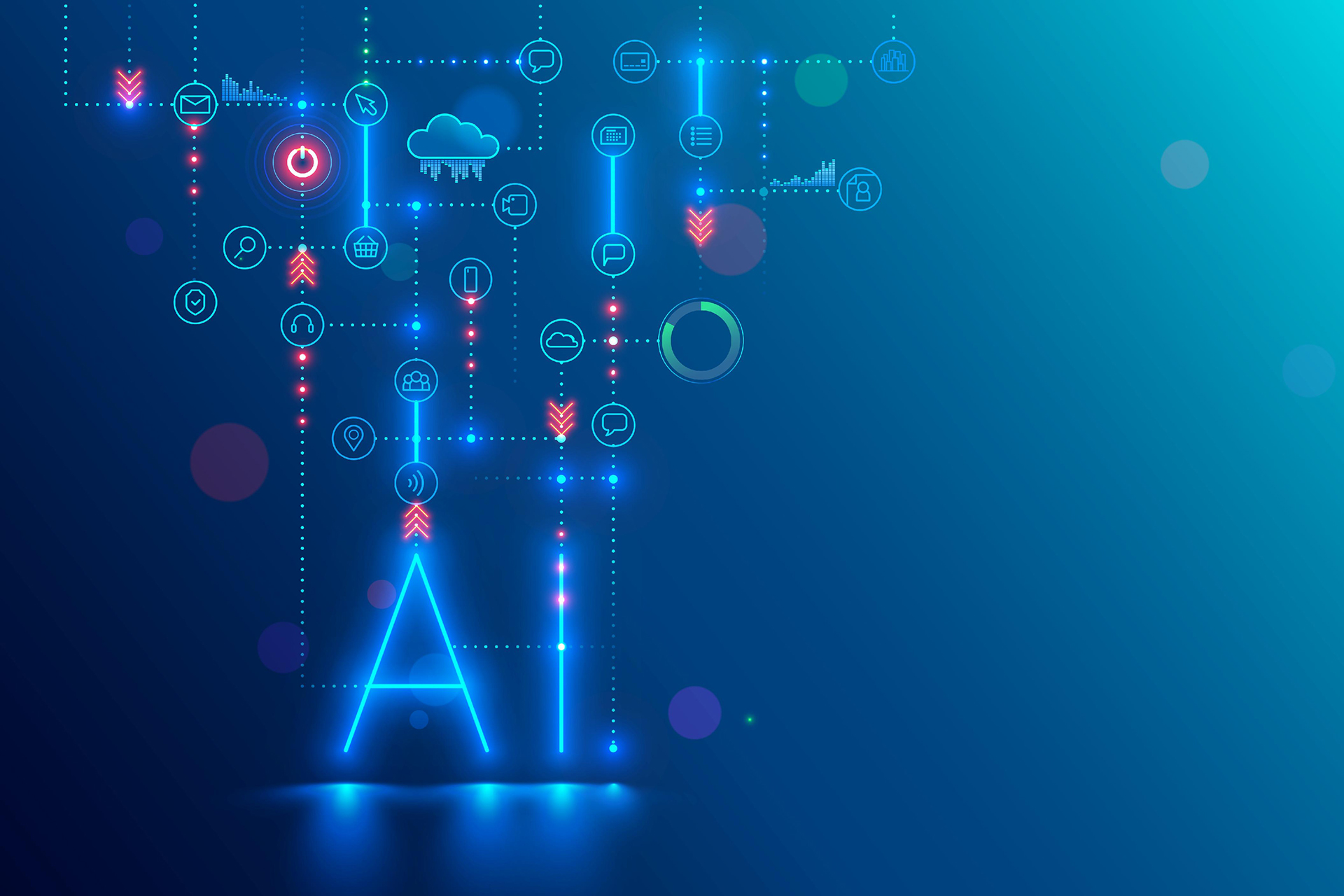Home >Technology peripherals >AI >Apple's AI strategy is very different from that of Microsoft and Google. Is it leading or lagging behind?
Apple's AI strategy is very different from that of Microsoft and Google. Is it leading or lagging behind?
- WBOYWBOYWBOYWBOYWBOYWBOYWBOYWBOYWBOYWBOYWBOYWBOYWBforward
- 2023-06-13 14:23:051410browse

As always, Apple did not disappoint at this year’s Worldwide Developers Conference (WWDC). The company unveiled new Macs, improved processors, an updated operating system, enhanced apps and, of course, the Vision Pro headset. Apple has always been deeply impressed by its engineering skills, product development and high prices.
The popular term "AI" at developer conferences held by other technology companies did not dominate this conference. Of course, that doesn't mean the company is completely ignoring the technology and its development. In fact, almost all Apple products displayed at WWDC incorporate artificial intelligence technology.
However, compared with Google, Microsoft and Amazon, Apple’s views and practices on AI are different.
Technology vs. Product: Apple and Microsoft Google’s AI strategies are very different
The main focus of the Google I/O and Microsoft Build conferences is to showcase the progress of the artificial intelligence technologies they have developed respectively. Basically, these companies are creating very advanced AI systems - the current tech craze revolves around large language models (LLMs) and generative AI - and making them available to developers to use in a variety of ways.
This is a completely feasible method. OpenAI’s ChatGPT seems to be an immature product. For people, they see a lot of impressive examples. Although there are many examples of failures, this does not reduce the usefulness of AI in any way. Developers and researchers are working hard to explore and create a variety of technical means to overcome its shortcomings and apply them in production practice.
Microsoft has developed a larger business based on ChatGPT and other LLMs and integrated them into many of its products. Google has launched its AI product, Bard, and is also using LLM and generative AI to enhance its search and other products.
These technology company conferences and product launches mainly focus on the technical details of AI models, and this is because they adopt a technology-centric approach. One hears a lot about benchmark performance and how LLM compares to other models.
In contrast, Apple is biding its time to create fully developed and well-designed AI products. This is why their focus at the developer conference is not to describe AI models and benchmark performance, but to show people off-the-shelf products and platforms that can solve specific problems. Developers are able to create applications without thinking about how the underlying technology works and simply focus on development for a specific platform.
Although the term was not mentioned, Apple showed off a number of artificial intelligence products at the Worldwide Developers Conference (WWDC). For example, many features of the Vision Pro headset use AI, including eye tracking, hand movement tracking, sensor fusion, object detection, avatar generation, etc. Other products are also embracing AI technology, such as the use of AR and masking features in video conferencing tools and the introduction of new autocorrect features in iOS 17.
To some extent, it makes perfect sense for Apple not to make AI the subject of the presentation. Apple products impress not because of their advanced artificial intelligence technology, but because of the way they use cutting-edge technology to create high quality. For example, the Vision Pro headset. Every part of it deserves the same attention as AI technology, including advanced cameras, lidar, real-time processors, SoCs, AI algorithms, and the operating system that brings all the technologies together.
Is Apple AI leading or lagging behind? It’s too early to tell
The difference between these two strategies adopted by technology companies lies in the expectations of users. Microsoft and Google provide technology that allows users to use it in different ways across a variety of platforms and settings. Apple provides users with a fully mature platform, as well as the entire hardware and software stack, to enable users to create their own products on this platform.
Microsoft and Google allow users to use their skills and imagination to explore the possibilities of their technologies and products. Through the joint efforts of developers, Apple provides users with a rich space for exploration, and hopes that users can explore more possibilities within their control.
Did Apple make a mistake in not participating in the promotion of AI at the Worldwide Developers Conference (WWDC)? The company's stock price fell after the conference, which may be because the conference did not mention AI. To be clear, Apple does not have a large-scale business base to develop and sell language model APIs.
But to some extent, Apple’s demonstration at the conference was a preview of the future of AI. When a technology matures, it disappears and fades into the background. Just like many companies will not brag about their use of transistors, microprocessors, touch screens, user interfaces (UI), the Internet, cloud computing, WiFi, etc., one day, using neural networks, LLM, generative models, and all other things that belong to AI Technology will become the norm. So in this respect, Apple may have been ahead of its time.
But the quality of the AI technology hidden behind Apple products remains to be verified by time.
The above is the detailed content of Apple's AI strategy is very different from that of Microsoft and Google. Is it leading or lagging behind?. For more information, please follow other related articles on the PHP Chinese website!
Related articles
See more- Technology trends to watch in 2023
- How Artificial Intelligence is Bringing New Everyday Work to Data Center Teams
- Can artificial intelligence or automation solve the problem of low energy efficiency in buildings?
- OpenAI co-founder interviewed by Huang Renxun: GPT-4's reasoning capabilities have not yet reached expectations
- Microsoft's Bing surpasses Google in search traffic thanks to OpenAI technology

